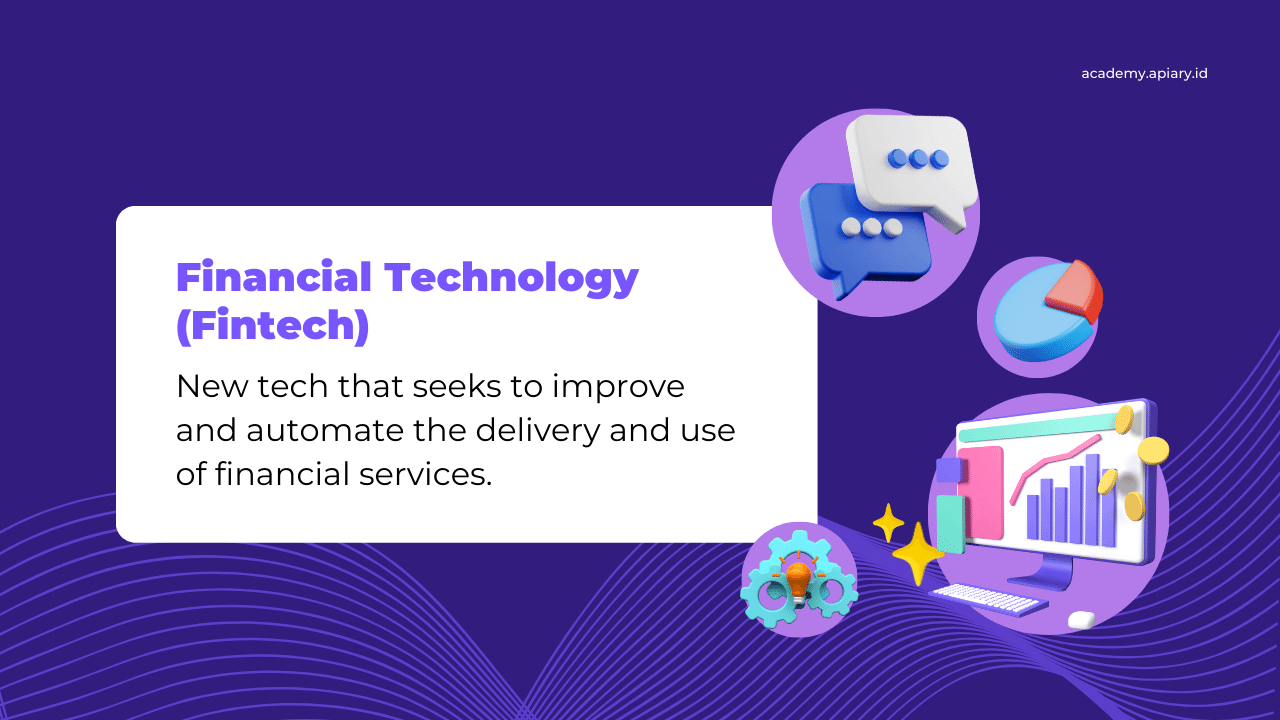The Fintech Industry: Definition, Landscape, and Companies

Financial technology (better known as Fintech) is used to describe new tech that seeks to improve and automate the delivery and use of financial services.
At its core, fintech is used to help companies, business owners, and consumers better manage their financial operations, processes, and lives by utilizing specialized software and algorithms that are used on computers and, increasingly, smartphones. Fintech, the word, is a combination of "financial technology."

FINTECH Landscape
- Cryptocurrency (Bitcoin, Ethereum, etc.), digital tokens (e.g., NFTs), and digital cash.
- These often rely on blockchain technology, which is a distributed ledger technology (DLT) that maintains records on a network of computers but has no central ledger.
- Blockchain also allows for so-called smart contracts, which utilise code to automatically execute contracts between parties such as buyers and sellers.
- Open banking is a concept that proposes that all people should have access to bank data to build applications that create a connected network of financial institutions and third-party providers.
- Insurtech, seeks to use technology to simplify and streamline the insurance industry.
- Regtech, seeks to help financial service firms meet industry compliance rules, especially those covering Anti-Money Laundering and Know Your Customer protocols that fight fraud.
- Robo-advisors, such as Betterment, utilise algorithms to automate investment advice to lower its cost and increase accessibility.
- Unbanked/underbanked services that seek to serve disadvantaged or low-income individuals who are ignored or underserved by traditional banks or mainstream financial services companies. These applications promote financial inclusion.
- Cybersecurity. Given the proliferation of cybercrime and the decentralized storage of data, cybersecurity and fintech are intertwined.
Regulation and Fintech in Indonesia
- Financial services are among the most heavily regulated sectors in the world. Not surprisingly, regulation has emerged as the number one concern among governments as fintech companies take off. As technology is integrated into financial services processes, regulatory problems for such companies have multiplied. In some instances, the issues are a function of technology. In others, they are a reflection of the tech industry's impatience to disrupt finance.
- For example, in Indonesia, every fintech have to follow regulation from OJK, and Bank Indonesia and have to strictly follow Data privacy rules (UU PDP - Perlindungan Data Pribadi), BUSB for reselling insurances, and so many other regulations
- Target Market: TAM SAM SOM
- Like the previous article (referring to the article from Hendra) explained about TAM SAM SOM
- TAM SAM SOM for Fintech will also differ based on their industry
Written by: Vincent

